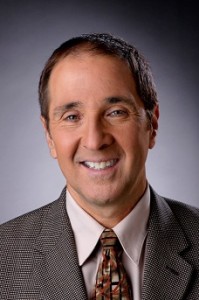Upon his joining the Dario Scientific Advisory Board we had a chance to ask William Polonsky some questions about how he sees the future for people with diabetes and what we should be doing to improve health outcomes for people with chronic illnesses
Meters have seen tremendous advances over the past twenty years, yet improvements in health outcomes have not kept pace. Why?
There has been a steady impressive improvement in making blood glucose testing less of a hassle and more convenient – there’s no doubt about that whatsoever. The reason we haven’t seen impressive improvement in long-term glycemic improvement is that there hasn’t been a tandem improvement in how we make good use of those numbers. Making a device convenient is a great first step, but if it doesn’t make it interesting and helpful enough for patients and doctors to make good use of the data than we shouldn’t expect to see improvement in results.
If you could build any feature into a Smart Meter like Dario, what might it be?
I would build in structured home experiments, involving tests before and after a specific event (repeated over a period of days), so that people can use their meter and get a summary of the results in a way that it could answer important, interesting and engaging questions for them. I wonder if my insulin bolus calculation works? How well do I do at lunch or dinner? How good am I at actually guessing my blood sugar?
The guessing one is an interesting example. The most important issue is whether or not you are good at guessing, or noticing, when you are low. As a first step, at what low number do you and your doctor agree that you should stop what you’re doing and take action? The most dangerous answer to this question is when a patient says “it depends”. I remember talking to a guy with a very high level job and he said, “It depends.” So I asked, “On what? What if it’s 40?” And he responded, “It depends on what I had been doing, whether I took insulin, how recently I exercised, when I had last eaten, how I’m feeling and more.” And I’m thinking, “You’re at 40, there’s not enough sugar going to your brain, and you’re going to engage in a complicated calculation while your blood glucose continues to drop? Not a good idea!.” So I work with him and say, “Let’s find your number.”
So we work to understand, first, how many times were you low, then determine how many of those times did you accurately guess that you were low. Basically, it doesn’t matter how close you are to guessing correctly the actual number. The real issue is can we help you get better at knowing when it is time to take action action to catch and treat a low.
Have you see any evidence that connecting patients using technology can provide positive social support?
There’s no question that we have seen, and will continue to see, a remarkable ability for technological innovations to have an enormous positive impact on helping to connect people, in particular helping people with diabetes to feel less isolated and to learn from each other. And we know there are tremendous health benefits when people feel less alone with diabetes, that people understand what they’re going through, that they’re are people out there who are rooting for them.
On the other side, there are definitely some challenges that come with connecting people online.
We know that one of the challenges of connecting people – and we see this on the internet quite a bit – is that there is often a lot of advice given that is crazy and in fact sometimes harmful. I don’t know if we have actually counted the positive versus negative advice – which side would actually win – but we still want to encourage connecting. But are we encouraging people to spread ideas that are flat out wrong?
I’ve always wanted to get someone like my good friend Dr. Rich Jackson of the Joslin Diabetes Center to have a weekly online column where we identify one “fact” about diabetes, such as an alternative treatment of some sort, being spread from person to person via social media and take a close look at it. Do acai berries or cinnamon, for example, really help? What can science tell us? What is known and what is not known? Is it possibly true but has not yet been investigated? People are free to ignore evidence, but it would be a really cool addition to add a little unbiased, “scientific light” to these online conversations.





